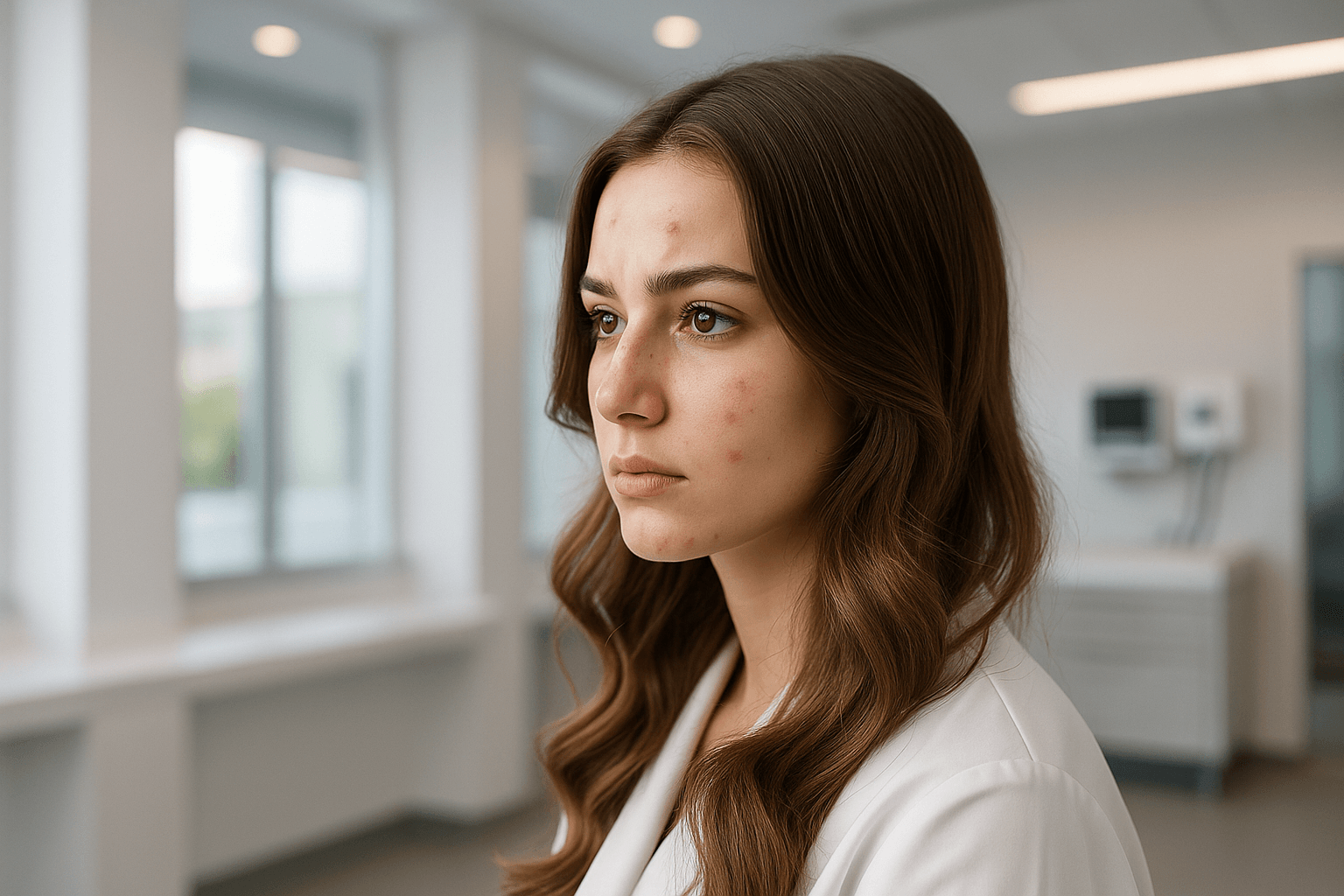
Full Body Lift Surgery: Complete Guide, Recovery, Results & Cost
Full body lift surgery is a comprehensive body contouring procedure designed to remove excess skin and reshape the body after […]
Introduction Acne is one of the most common skin concerns in the world, affecting teenagers, adults, and even people well […]

Acne is one of the most common skin concerns in the world, affecting teenagers, adults, and even people well into their 40s. It can appear as pimples, blackheads, whiteheads, or deeper cysts, and while it isn’t life-threatening, it often takes a toll on confidence and emotional well-being.
When a breakout strikes—especially before an important event—the first question on everyone’s mind is: how can I get rid of acne fast?
Dermatologists agree that while there’s no magical overnight cure, there are science-backed strategies that can dramatically reduce inflammation, shrink pimples quickly, and prevent new ones from forming. In this article, we’ll explore dermatologist-approved methods to clear acne faster, from at-home solutions to professional treatments.
The right treatment starts with knowing what type of acne you’re dealing with:
Whiteheads: clogged pores closed at the surface.
Blackheads: clogged pores open at the surface, appearing dark.
Papules & Pustules: red, inflamed bumps, often with pus.
Nodules & Cysts: large, painful lumps under the skin that often require medical care.
Quick tip: Small pimples and blackheads may respond to over-the-counter (OTC) treatments, but cystic acne usually needs prescription medication or in-office procedures.
Kills acne-causing bacteria and reduces inflammation.
Best for red, inflamed pimples.
Found in spot treatments, cleansers, and gels.
Dermatologists recommend starting with 2.5% or 5% formulations to minimize irritation.
Source: American Academy of Dermatology
A beta-hydroxy acid (BHA) that unclogs pores and reduces oil.
Works well for blackheads and whiteheads.
Often found in cleansers, toners, and serums.
Absorbs excess oil and calms inflammation.
Gentle enough for sensitive skin and often used in overnight masks.
Speeds up cell turnover and prevents clogged pores.
Best for long-term prevention, but can also help existing pimples heal faster.
While medical treatments work fastest, certain home remedies can complement your skincare:
Ice Therapy: Wrap ice in a clean cloth and press on inflamed pimples for 1–2 minutes to reduce swelling and redness.
Green Tea Extract: Contains antioxidants and anti-inflammatory properties; topical formulations may reduce oil and acne lesions.
Honey: Known for antibacterial properties; applying a thin layer as a mask can help calm mild breakouts.
Avoid DIY hacks like toothpaste or lemon juice—they often irritate the skin and worsen acne.
When breakouts are severe, persistent, or cystic, professional help is the fastest way to clear acne.
A dermatologist injects a diluted steroid into a cystic pimple.
Works within 24–48 hours to flatten painful cysts.
Often used for emergency situations, like before weddings or photo shoots.
Mild acids exfoliate the skin and unclog pores.
Improve both active acne and post-acne marks.
Source: Cleveland Clinic
Blue light kills acne-causing bacteria.
Laser treatments reduce oil production and inflammation.
Results vary, but they can speed healing for stubborn acne.
Topical retinoids, antibiotics, or azelaic acid for moderate cases.
Oral antibiotics for widespread inflammation.
Hormonal therapies (e.g., birth control pills, spironolactone) for women with hormonal acne.
Isotretinoin (Accutane): powerful option for severe, resistant cases.
Clearing acne fast is one thing; keeping it away is another. Dermatologists recommend these preventive habits:
Consistent Skincare Routine: Gentle cleansing twice daily, moisturizer, and sunscreen.
Avoid Over-Washing: Harsh scrubbing can worsen acne.
Non-Comedogenic Products: Choose skincare and makeup that won’t clog pores.
Healthy Diet: Limit high-glycemic foods and dairy, which may worsen acne in some people.
Manage Stress: Stress hormones can trigger flare-ups.
Acne doesn’t just affect the skin—it affects mental health. Studies show that acne can lead to anxiety, low self-esteem, and even depression, particularly among teenagers and young adults. Addressing acne quickly and effectively is not just a cosmetic issue—it’s part of overall well-being.
You should seek professional help if:
Your acne is severe or cystic.
OTC products don’t improve it after 8–12 weeks.
Acne leaves scars or dark marks.
It impacts your confidence and daily life.
There’s no instant cure for acne, but with the right approach, you can dramatically speed up the healing process. Over-the-counter products like benzoyl peroxide and salicylic acid, combined with dermatologist treatments such as cortisone injections or chemical peels, are the fastest ways to clear skin.
At the same time, prevention is key—consistent skincare, healthy lifestyle habits, and professional guidance will keep acne under control long-term.
Don’t let acne define your confidence. With science-backed methods and expert care, clear, healthy skin is within reach.
If you’re ready to explore your treatment options, platforms like Tabeebo make it simple to connect with a dermatologist—click here to get started.
American Academy of Dermatology Association. Benzoyl Peroxide: What It Is and How It Works
Cleveland Clinic. Chemical Peels: Purpose, Procedure, and Risks
Zaenglein, A. L. et al. (2016). Guidelines of care for the management of acne vulgaris. Journal of the American Academy of Dermatology, 74(5), 945–973.
Summary